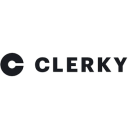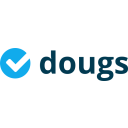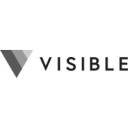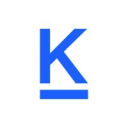Ledgy vs Carta: Which platform offers better value for startups?
- 01Ledgy vs Carta: overview
- 02What's the difference between Ledgy and Carta?
- 03Ledgy pros and cons
- 04Carta pros and cons
- 05Ledgy compared to Carta
- 06Carta compared to Ledgy
- 07Features comparison
- 08Ledgy vs Carta: Which is the best for your business?
- 09Promotions on Legal software
- 10Alternatives to Ledgy & Carta
Access up to $6,500 savings on Ledgy & $625 on Carta
Ledgy
25% off your first year
Access up to $6,500 savings on Ledgy & $625 on Carta
Equity management platforms are crucial for both emerging startups and established companies aiming to efficiently manage their stock options, equity plans, and investor relations. Two leading options in the equity management space are Ledgy and Carta. These platforms offer robust solutions that can significantly influence your company’s equity management strategies, and choosing the right one can be a challenging decision given the variety of features each provides.
But have no fear! In this comprehensive article, we will dive into a detailed comparison of Ledgy vs Carta. We will explore their shared features, unique capabilities, and distinctive advantages, helping you make an informed decision about which equity management platform aligns best with your company's specific needs. So, read on to discover the nuances of Ledgy and Carta and determine which one is the ideal fit for your equity management needs.
Ledgy vs Carta: overview
Ledgy and Carta are prominent players in the world of equity and investment management software, each offering unique sets of features and advantages tailored to different company requirements.
Ledgy stands out with its user-friendly interface and strong focus on European markets, making it an excellent choice for startups and scale-ups that require a straightforward approach to managing equity with international compliance. On the other hand, Carta is known for its comprehensive suite of tools that cater to a wide range of needs from cap table management to full-scale IPO readiness, making it suitable for larger enterprises or those planning significant growth.
Now, let's dive into the Ledgy vs. Carta comparison to help you make an informed decision when selecting the right equity management platform for your company's specific needs.
What's the difference between Ledgy and Carta?
Ledgy and Carta are both robust equity management platforms, but they cater to different needs and preferences with distinct differences in their features and functionalities.
One of the key differences between Ledgy and Carta is their target audience and the scalability they offer. Ledgy is particularly tailored to startups and growing companies in Europe, focusing on user-friendly features and ensuring compliance with European regulations. It excels in handling employee participation plans and providing transparent equity management, which is essential for smaller organizations looking to scale without extensive legal overhead.
In contrast, Carta is a more comprehensive solution that targets companies at various growth stages, including those gearing towards public offerings. It offers a broad suite of services including cap table management, 409A valuations, and IPO planning, making it ideal for larger enterprises or those with complex equity structures and multiple stakeholders. Carta's depth of features supports a range of needs from early-stage startups to public companies.
Additionally, the user interface and experience of both platforms differ significantly. Ledgy boasts a straightforward, intuitive design that makes navigation and equity management simple for users who may not have a deep financial background. This approachability is a key benefit for companies that need a no-fuss solution that employees can use with minimal training.
Carta, on the other hand, while also user-friendly, offers a more detailed and feature-rich interface that can handle intricate and diverse equity arrangements. This makes it suitable for companies that require detailed reporting and analytics capabilities to accommodate complex financial structures and investor requirements.
Pricing also varies between the two platforms, with Ledgy often being more cost-effective for smaller companies or those at an earlier stage of growth, while Carta's pricing structure is designed to cater to larger firms or those needing more extensive services that go beyond basic equity management.
These differences make each platform suitable for distinct business models and stages, with Ledgy being ideal for European startups and smaller companies, and Carta fitting better with larger or more complex organizations planning significant growth or public offerings.

25% off your first year on Ledgy
Get 25% off your first year on Ledgy and up to $6,500 savings with Secret.
Ledgy pros and cons
What are the advantages of Ledgy?
- Efficiency: Ledgy automates many of the tedious tasks associated with managing equity, such as updating cap tables, issuing equity grants, and processing transactions. This streamlines processes and saves time for both founders and investors.
- Transparency: The platform provides real-time visibility into equity ownership and dilution, fostering transparency and trust among stakeholders. This transparency can be crucial for startups in attracting and retaining top talent.
- Compliance: Ledgy helps ensure compliance with regulatory requirements by generating accurate reports and maintaining a comprehensive audit trail. This reduces the risk of errors and regulatory penalties.
- Collaboration: Ledgy facilitates collaboration among team members, investors, and legal advisors by providing a centralized platform for communication and document sharing. This enhances coordination and alignment on equity-related matters.
- Analytics: The platform offers advanced analytics and scenario modeling tools, allowing stakeholders to analyze various equity scenarios and make informed decisions. This can be invaluable for strategic planning and fundraising efforts.
What are the disadvantages of Ledgy?
- Learning curve: Adopting Ledgy may require time and resources for training, especially for users who are not familiar with equity management software. This initial learning curve could slow down the onboarding process.
- Cost: While Ledgy can offer significant value in terms of time savings and compliance, it comes at a cost. For startups with limited budgets, the subscription fees for using Ledgy may be a deterrent.
- Customization limitations: Some users may find Ledgy's customization options limited compared to other equity management platforms. This could be a drawback for companies with unique equity structures or complex requirements.
- Integration challenges: Integrating Ledgy with other software tools used by the company, such as accounting or HR systems, may require additional effort and technical expertise. Poor integration can lead to data inconsistencies and inefficiencies.
- Dependence on tech infrastructure: Like any software platform, Ledgy is vulnerable to technical glitches, downtime, or cybersecurity threats. Dependence on the platform for critical equity management functions could pose risks in the event of service disruptions.
Carta pros and cons
What are the advantages of Carta?
- Comprehensive solution: Carta offers a wide range of features beyond basic cap table management, including equity plan administration, 409A valuations, ASC 718 reporting, and compliance tools. This comprehensive approach simplifies equity management for startups and growing companies.
- User-friendly interface: Carta's interface is designed to be intuitive and user-friendly, making it easier for stakeholders to navigate and access relevant information. This can reduce the learning curve and improve overall user experience.
- Investor relations: Carta provides tools for managing investor relations, such as investor updates, document sharing, and communication tracking. This helps companies maintain transparency and engagement with their investors, which can be crucial for long-term relationships.
- Integration capabilities: Carta offers robust integration capabilities, allowing users to connect the platform with other software tools used in their organization, such as accounting, HR, or legal systems. Seamless integration enhances data accuracy and workflow efficiency.
- Scalability: Carta is designed to scale with companies as they grow, accommodating changes in equity structure, ownership, and compliance requirements. This scalability makes it suitable for startups as well as larger enterprises.
What are the disadvantages of Carta?
- Cost: Carta's pricing structure can be expensive, especially for early-stage startups or companies with limited resources. The subscription fees, along with additional charges for services like valuations or legal support, may not be feasible for all organizations.
- Complexity for small teams: While Carta offers comprehensive features, some smaller teams may find the platform overly complex or feature-rich for their needs. This complexity could lead to underutilization of the platform or difficulties in implementation.
- Customer support: Some users have reported challenges with Carta's customer support, citing delays in response times or difficulty in reaching a resolution for technical issues. This can be frustrating for users who rely on timely support for critical matters.
- Data security concerns: Given the sensitive nature of equity-related data stored on the platform, data security is a significant concern. Any breaches or vulnerabilities in Carta's security measures could expose companies to financial and reputational risks.
- Dependence on vendor: Companies using Carta rely heavily on the vendor for ongoing support, maintenance, and updates to the platform. Any disruptions in Carta's service or changes to its pricing and policies could impact users' operations and decision-making processes.
Compare Carta to other tools
Ledgy compared to Carta
Ledgy and Carta both offer equity management solutions for startups and growing companies, yet they differ in key aspects. Ledgy stands out for its streamlined efficiency, providing automation for tasks like cap table updates and equity grants. Its transparency and collaboration features foster trust among stakeholders. However, Ledgy may have a learning curve and limited customization options.
On the other hand, Carta offers a comprehensive solution with robust investor relations and integration capabilities. Yet, its cost and complexity, especially for smaller teams, may pose challenges.
Is Ledgy better than Carta?
Comparing Ledgy and Carta in the realm of equity management, the choice largely hinges on specific business needs and sizes. While Ledgy excels in creating an efficient, transparent environment for stakeholders, its learning curve and customization limits may deter some users.
Carta, conversely, caters to a broader range of needs with its extensive features and integrations, making it ideal for larger entities that can navigate its complexities and justify the higher cost. Startups or smaller companies might prefer Ledgy for simplicity and cost-effectiveness, whereas larger firms could find Carta’s comprehensive tools more fitting.
What is Ledgy best used for?
Ledgy excels in simplifying equity management processes for startups and growing companies. Its automation streamlines tasks like cap table updates, equity grants, and compliance reporting, saving valuable time and reducing the risk of errors. Ledgy's real-time transparency fosters trust among stakeholders by providing clear visibility into equity ownership and dilution. It's best used for maintaining accurate and compliant equity records, facilitating collaboration among team members, investors, and legal advisors.
Additionally, Ledgy's analytics tools enable stakeholders to make informed decisions and plan strategically for future fundraising efforts. Overall, Ledgy is an ideal solution for companies seeking efficiency, transparency, and scalability in their equity management.
Can Ledgy replace Carta?
While Ledgy offers robust features for equity management, it may not entirely replace Carta for all companies. Ledgy's strengths lie in its efficiency, transparency, and collaboration tools, making it a compelling option for startups and growing businesses.
However, Carta's comprehensive suite of services, including investor relations and integration capabilities, may provide additional value for larger enterprises with complex needs. Whether Ledgy can fully replace Carta depends on factors such as the company's size, industry, and specific requirements.
Is Ledgy cheaper than Carta?
Determining whether Ledgy is cheaper than Carta depends on various factors such as company size, usage needs, and desired features. Ledgy’s pricing plans are typically more competitive, making it an attractive option for startups and smaller companies with limited budgets.
However, Carta's pricing structure may provide more value for larger enterprises requiring a comprehensive suite of services. While Ledgy may offer cost savings for some users, it's essential to consider factors beyond initial pricing, such as scalability, integration capabilities, and ongoing support.
Is there a better Legal software than Ledgy?
While Ledgy offers comprehensive equity management solutions, it's worth exploring whether there might be a better-suited alternative for your specific equity management needs.
There are several notable alternatives to Ledgy in the equity management software landscape, each catering to different company sizes, industries, and preferences. Some of these alternatives include Carta, Capdesk, Eqvista, Shareworks, and Cake Equity.
The choice of equity management software depends on factors such as your company's stage of growth, budget, compliance requirements, and desired features. While Ledgy offers efficiency, transparency, and collaboration tools, other platforms may excel in investor relations, integration capabilities, or scalability. Evaluating your unique requirements will help you determine whether there's a more suitable software than Ledgy for managing your equity.
25% off your first year on Ledgy
Get 25% off your first year on Ledgy and up to $6,500 savings with Secret.
Carta compared to Ledgy
Carta and Ledgy are prominent players in the equity management software realm, each offering distinct advantages. Carta boasts a comprehensive suite of features, including investor relations tools and robust integration capabilities, making it suitable for larger enterprises with complex needs.
Ledgy, on the other hand, focuses on efficiency and transparency, streamlining tasks like cap table updates and equity grants for startups and growing companies. While Carta may offer more extensive services, Ledgy stands out for its user-friendly interface and cost-effectiveness.
Is Carta better than Ledgy?
Deciding between Carta and Ledgy often boils down to the scale and needs of the organization. Carta's extensive suite of features and robust integrations offer larger enterprises a powerful tool to manage complex equity scenarios, potentially outweighing its higher cost and complexity. It is particularly beneficial for those companies that require deep investor engagement and detailed financial analytics.
Conversely, Ledgy's emphasis on simplicity and cost efficiency makes it a compelling choice for startups and smaller companies seeking straightforward equity management solutions without the bells and whistles.
What is Carta best used for?
Carta excels as an equity management platform, catering to the diverse needs of startups, growing companies, and larger enterprises. Its comprehensive suite of features makes it ideal for managing complex equity structures, investor relations, and compliance requirements. Carta is best used for maintaining accurate and up-to-date cap tables, facilitating seamless equity transactions, and ensuring regulatory compliance.
Additionally, its integration capabilities allow for seamless connectivity with other business tools, enhancing workflow efficiency. Carta's robust reporting and analytics tools enable stakeholders to make informed decisions, plan strategically, and maintain transparency with investors and stakeholders. Overall, Carta is a valuable solution for companies prioritizing equity management excellence.
Can Carta replace Ledgy?
Determining whether Carta can fully replace Ledgy depends on various factors such as company size, industry, and specific equity management needs. Carta offers a comprehensive suite of features tailored to the requirements of startups, growing companies, and larger enterprises.
While Carta excels in areas like investor relations, compliance, and integration capabilities, Ledgy focuses on efficiency, transparency, and user-friendly interface, particularly beneficial for smaller teams or those prioritizing simplicity. Whether Carta can entirely replace Ledgy hinges on factors such as scalability, budget, and the importance of features like automation and collaboration tools.
Is Carta cheaper than Ledgy?
Determining whether Carta is cheaper than Ledgy involves considering various factors such as company size, usage needs, and desired features. Carta typically offers competitive pricing plans tailored to the needs of startups, growing companies, and larger enterprises. However, Ledgy may provide more cost-effective options, especially for smaller teams or those with limited budgets.
While Carta's pricing structure may offer additional value in terms of comprehensive features and services, Ledgy's affordability may be advantageous for companies prioritizing simplicity and efficiency.
Is there a better Investment Management software than Carta?
While Carta is a leading equity management platform, it's crucial to explore whether there might be a better-suited software solution for your specific equity management needs.
There are several notable alternatives to Carta in the equity management software landscape, each catering to different company sizes, industries, and preferences. Some prominent alternatives include Ledgy, Astrella, Pulley, Clerky, and Gust.
The choice of equity management software depends on factors such as your company's stage of growth, compliance requirements, budget, and desired features. While Carta offers comprehensive services, other platforms may excel in efficiency, transparency, or cost-effectiveness, aligning better with your specific equity management priorities.
25% off 1 year on Carta
Get 25% off 1 year on Carta and up to $625 savings with Secret.
Features comparison
Ledgy's User-Friendly Interface Surpasses Carta's Complexity
When it comes to user-friendliness, Ledgy stands out ahead of Carta. Ledgy offers a seamless experience with its intuitive interface, making equity management tasks simple and efficient. For instance, navigating through cap table updates or issuing equity grants is straightforward on Ledgy's platform, even for users new to equity management software.
In contrast, Carta's extensive features can sometimes overwhelm users, leading to a steeper learning curve. Ledgy strikes a balance by providing similar functionalities to Carta but with a cleaner and more straightforward interface, ensuring that entrepreneurs can easily utilize its capabilities, regardless of their tech proficiency.
Ledgy's Financial Forecasting Enhances Decision-Making Beyond Carta's Reach
Ledgy surpasses Carta with its robust financial forecasting capabilities, a feature vital for strategic decision-making. Ledgy empowers users to forecast how funding rounds and exits will impact their company's finances, providing valuable insights into future scenarios. For instance, users can simulate different funding scenarios and assess their implications on equity dilution and financial health. This forecasting ability enables collaborative decision-making among stakeholders, ensuring informed choices that align with the company's goals.
While Carta offers essential equity management features, Ledgy's advanced financial forecasting sets it apart, empowering users to make proactive decisions that drive the long-term success of their company.
Carta's Automated Cap Table Updates Streamline Equity Management Beyond Ledgy's Reach
Carta excels in automating cap table updates, offering a seamless experience for users. Every issuance of electronic securities, funding round, or 409A valuation triggers automatic updates, eliminating the need for manual spreadsheet management. This automation ensures that equity information remains accurate and up-to-date, serving as a reliable source of truth for stakeholders.
For example, when issuing new shares or conducting a funding round, Carta automatically adjusts ownership percentages and updates shareholder records in real-time. Ledgy, while providing essential equity management features, does not match Carta's level of automation, making Carta the preferred choice for companies seeking efficient and reliable cap table management.
Ledgy Enhances Employee Engagement and HR Efficiency Beyond Carta's Capabilities
Ledgy stands out for its focus on improving employee management and engagement, setting it apart from Carta. Ledgy empowers employees to self-manage their equity, fostering a culture of involvement and transparency within the organization. For instance, employees can access their equity holdings, exercise options, and track their ownership percentage directly through the platform, enhancing their sense of ownership and commitment.
Additionally, Ledgy streamlines HR processes by enabling quick generation of essential documents, such as option agreements, with features like auto-fill and digital signatures. While Carta offers robust equity management features, Ledgy's emphasis on employee engagement and HR efficiency makes it the preferred choice for companies prioritizing these aspects.
Carta's Robust Document Management Enhances Stakeholder Communication Beyond Ledgy's Reach
Carta excels in document management, offering secure storage, sharing, and management of critical company documents, surpassing Ledgy in this aspect. With Carta, users can securely store and share important documents such as shareholder agreements, board resolutions, and legal contracts, facilitating seamless communication with stakeholders and investors. For instance, Carta's secure document sharing feature allows users to grant access to specific documents to relevant parties while maintaining confidentiality and compliance. This promotes transparency and efficiency in decision-making processes, ensuring that stakeholders have access to up-to-date information when making strategic decisions.
Ledgy, while offering essential equity management features, does not match Carta's comprehensive document management capabilities, making Carta the preferred choice for companies prioritizing secure and efficient document sharing.
Ledgy and Carta Offer Invaluable Business Insights for Informed Decision-Making
Ledgy and Carta each offer unique features to analyze company performance and access insights, ensuring informed decision-making. Ledgy facilitates collaboration with stakeholders on key performance indicators (KPIs) and enables monitoring of company performance through custom reports. For instance, users can track metrics such as revenue growth, customer acquisition costs, and churn rates to assess business health and identify areas for improvement.
Similarly, Carta provides valuable insights into cap table dynamics, financing rounds, and more through its data analytics tools. This allows users to gain a deeper understanding of their company's financial health and make strategic decisions with confidence. Both Ledgy and Carta empower users with actionable insights, ensuring that businesses are well-equipped to navigate challenges and capitalize on opportunities.
Carta Leads in Integration Capabilities, Outpacing Ledgy's Focus on Simplicity
While both Ledgy and Carta facilitate integrations with various platforms, Carta offers a more extensive range. For example, Carta has established partnerships with numerous services such as HR systems and financial platforms, enabling seamless synchronization of business data across multiple platforms. This extensive integration network simplifies equity management, cap table maintenance, and investor relations for users.
Although Ledgy provides essential integrations, its focus on simplicity and usability means it doesn't match Carta's breadth and depth of integrations. Ledgy prioritizes a straightforward interface over extensive compatibility, catering to users seeking efficiency and ease of use.
Subscribe to our newsletters.
No FOMO here. Stay up-to-date on all the latest deals and news with our monthly newsletter straight to your inbox like 123,000+ entrepreneurs (+ Get 10% off on on our Premium Membership!)
Ledgy vs Carta: Which is the best for your business?
Ledgy is the best tool for you if:
- You value a user-friendly interface that simplifies equity management, particularly for startups or smaller companies needing to streamline their cap table management and equity distributions.
- Transparency is a top priority in your business, and you require a platform that enhances stakeholder trust through clear, accessible information about equity holdings and transactions.
- You are looking for cost-effective software solutions that offer essential features without the extensive overhead or complexities that come with more robust systems.
- Your team requires a tool that supports automation in updating cap tables and managing equity grants, reducing the manual workload and potential for human error.
- Collaboration among stakeholders is crucial for your operations, and you need a platform that facilitates easy sharing and updating of equity information in real-time.
Carta is the best tool for you if:
- You operate a larger enterprise with complex equity structures and require a robust system that offers comprehensive investor relations tools and detailed financial analytics.
- Integration capabilities are crucial for your operations, and you need a system that can seamlessly connect with other financial, HR, and legal software you currently use.
- You are prepared to invest in a more expensive solution that provides extensive features, ensuring scalability as your company grows and your equity management needs evolve.
- Managing a diverse and extensive portfolio is part of your business, requiring advanced tools for equity management, reporting, and compliance that Carta offers.
- Detailed and regular engagement with investors is necessary, and you benefit from a platform that supports effective communication and access to investment data and performance metrics.

25% off your first year on Ledgy
Get 25% off your first year on Ledgy and up to $6,500 savings with Secret.
Alternatives to Ledgy & Carta
Promotions on Legal software
Start saving on the best SaaS with Secret.
Secret has already helped tens of thousands of startups save millions on the best SaaS like Ledgy, Carta & many more. Join Secret now to buy software the smart way.











